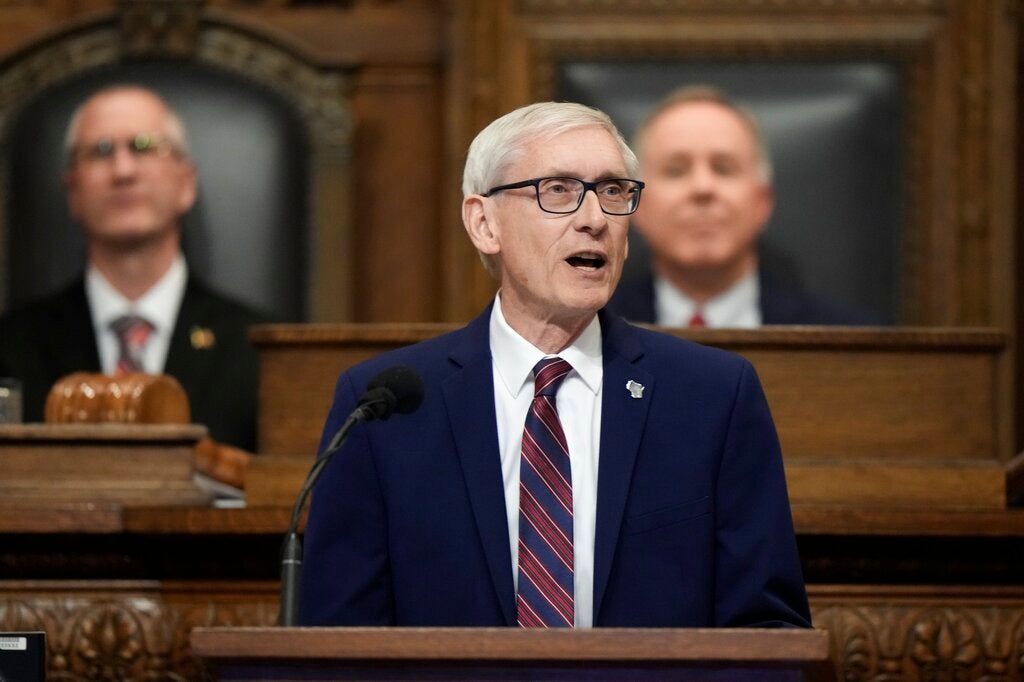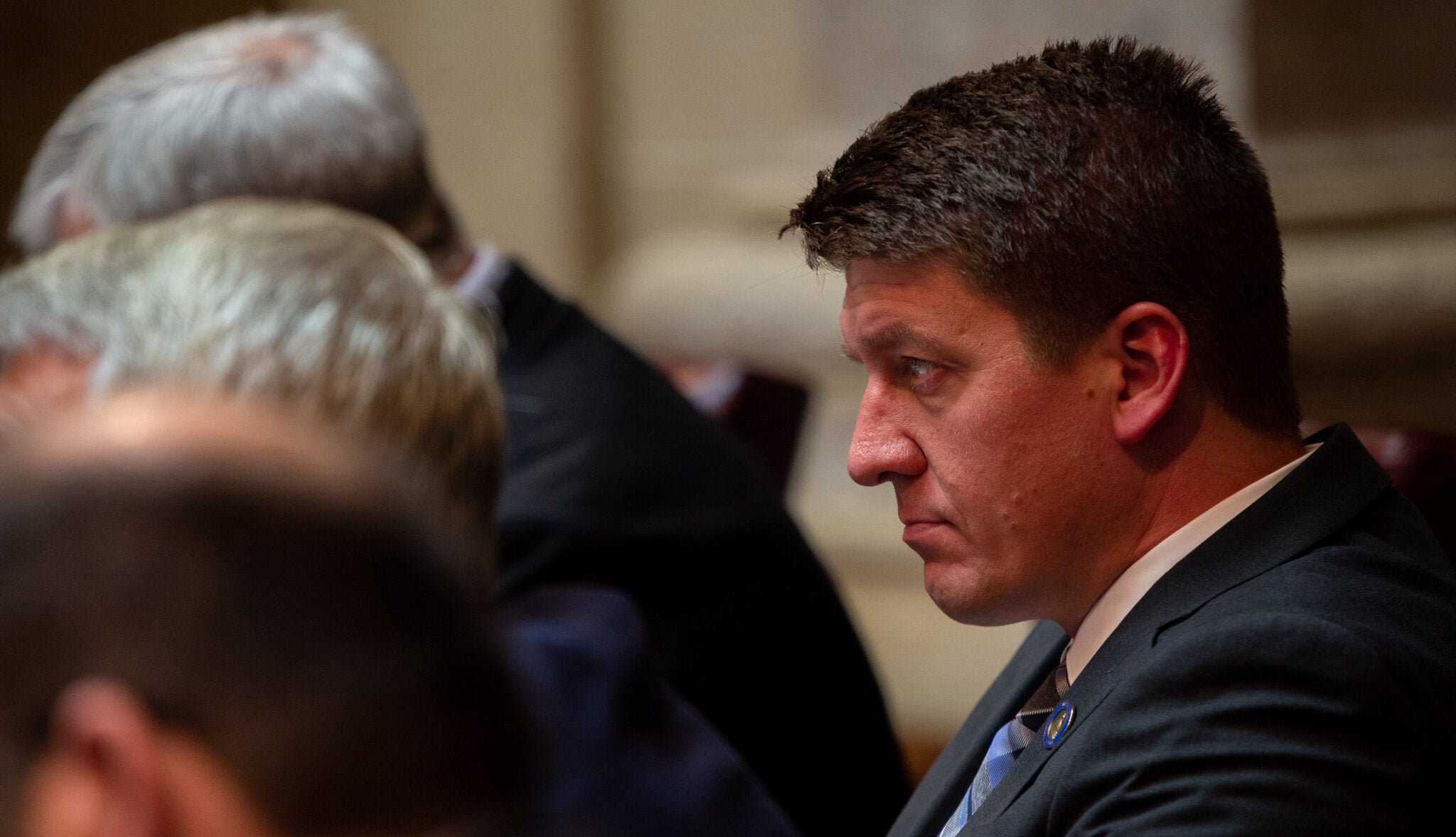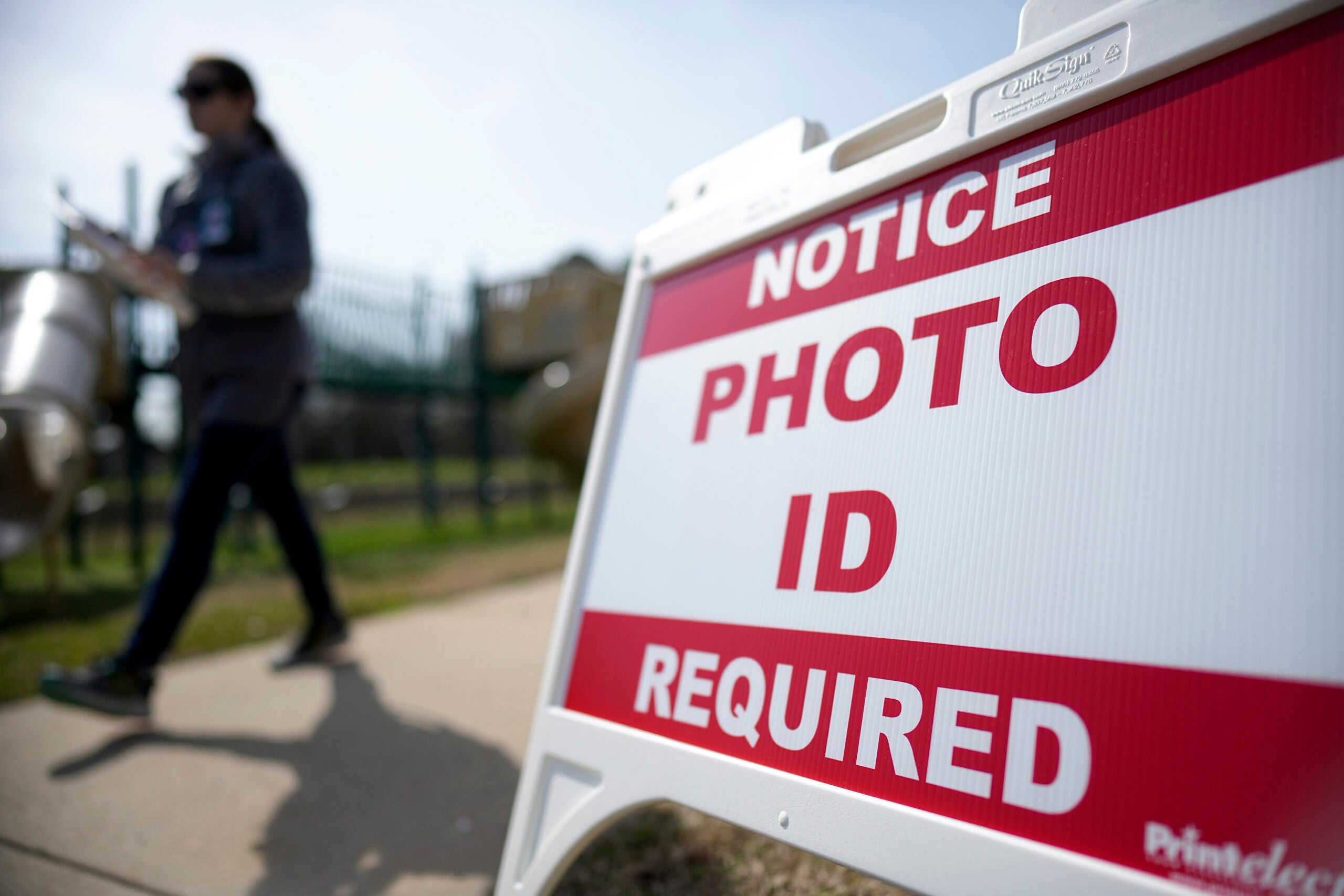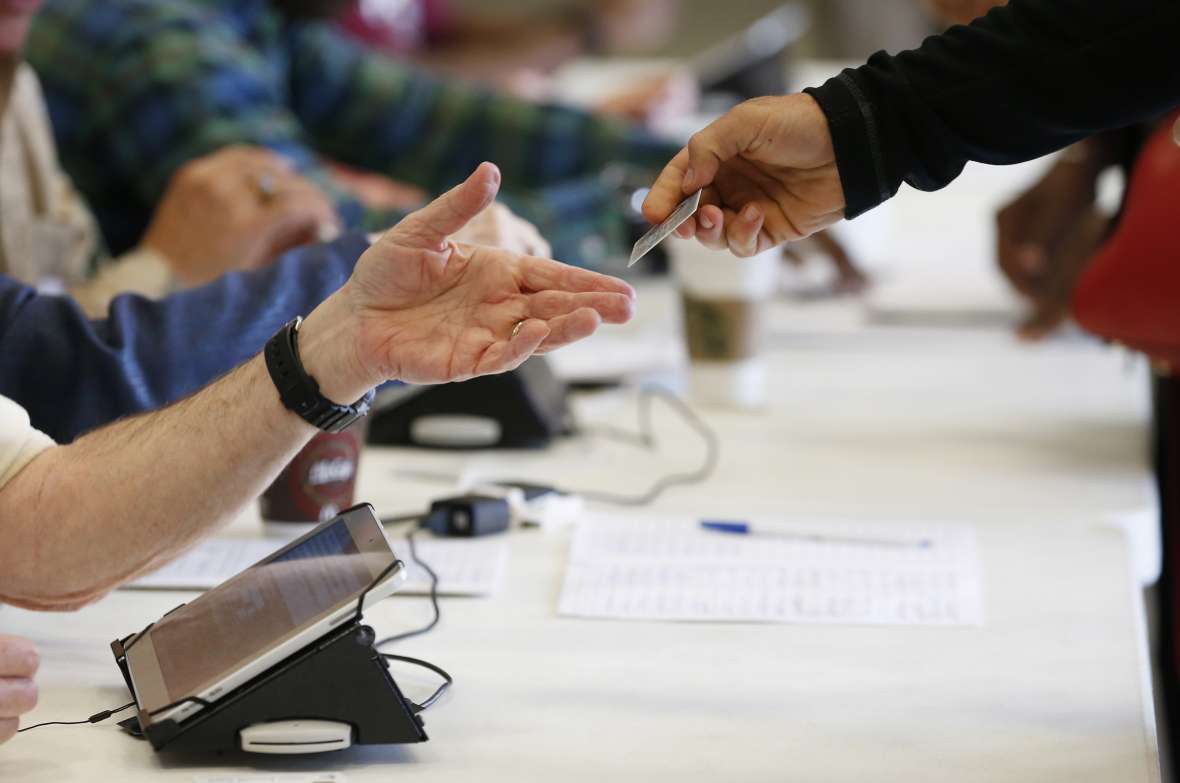Wisconsin voters have rejected two Republican-backed amendments to the state constitution, which would have restricted the governor’s ability to spend federal funds.
The failed proposals would have required a governor to get legislative approval before spending federal money that’s been earmarked for the state.
According to unofficial results posted by the Associated Press as of 9:11 p.m., both referendums failed by a margin of about 58 to 42 percent.
News with a little more humanity
WPR’s “Wisconsin Today” newsletter keeps you connected to the state you love without feeling overwhelmed. No paywall. No agenda. No corporate filter.
The outcome is a major victory for Gov. Tony Evers and other Democrats who campaigned against the measures, and Evers issued a written statement celebrating the defeat of the referendums Tuesday night.
“This was a referendum on our administration’s work and the future for Wisconsin we’ve been working hard to build together,” Evers said. “The answer is reflected in the people’s vote tonight.”
It’s unusual for Wisconsin voters to reject proposed constitutional amendments. Over the state’s entire history, nearly three-quarters of such amendments have passed. Since 2020, Wisconsin voters have considered seven constitutional amendments, and all but the latest two proposals have passed.
Republicans who run the Legislature brought the proposals to the ballot. To do so, lawmakers had to approve resolutions in two separate, consecutive legislative sessions.
The proposals would have worked in tandem. One would have required legislative approval before Wisconsin’s governor could expend federal money earmarked for the state. The other would have barred future Legislatures from giving that power away.
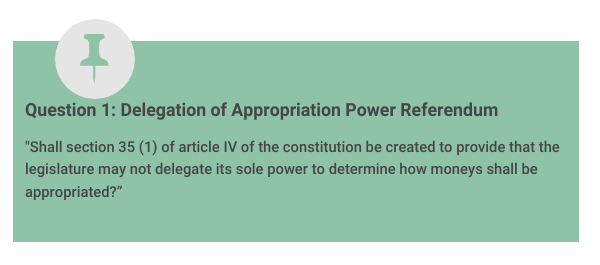
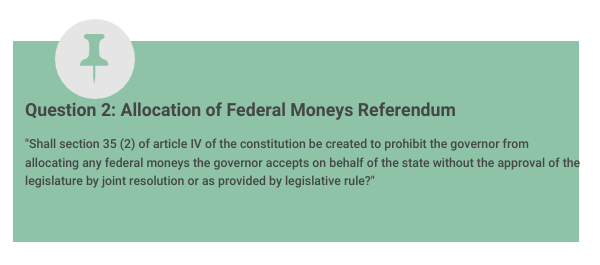
As they made their push for the amendments, Republicans pointed to billions of dollars in federal COVID-19 aid, which was distributed by the Evers administration. That process, they argued, lacked transparency and accountability.
The conservative Badger Institute and Wisconsin Manufacturers & Commerce joined Republicans in urging people to vote “yes,” arguing that the changes would add necessary checks and balances.
Democrats accused Republicans of trying to usurp the governor’s authority, and Wisconsin’s Democratic Party actively campaigned against the amendments.
Critics argued the amendments would have introduced too much red tape by making it harder for Wisconsin to distribute aid quickly during an emergency, such as an environmental disaster or another public crisis. The broad coalition of groups opposing the measures included Wisconsin Conservation Voters and Planned Parenthood Advocates of Wisconsin.
On Tuesday, some voters told WPR the language of the proposed amendments was confusing and that the campaigns waged for and against the amendments were aggressive. Some voters in Madison received text messages urging them to vote “yes” on the amendments to keep “right wing governors like Scott Walker” from spending federal aid without oversight.
If the amendments had succeeded, they would have been added to Wisconsin’s Constitution without the governor’s approval, sidestepping Evers’ veto pen altogether.
In an analysis of the measures, the nonpartisan Wisconsin Policy Forum noted that the proposals’ “broad” language could have had far-reaching consequences.
“The full impact of the amendments will be highly dependent on how they are interpreted by the Legislature and the courts,” the analysis said. “It likely will impact far more than just cases of emergency influxes of federal funds that are similar to the pandemic.”
Wisconsin Public Radio, © Copyright 2025, Board of Regents of the University of Wisconsin System and Wisconsin Educational Communications Board.

